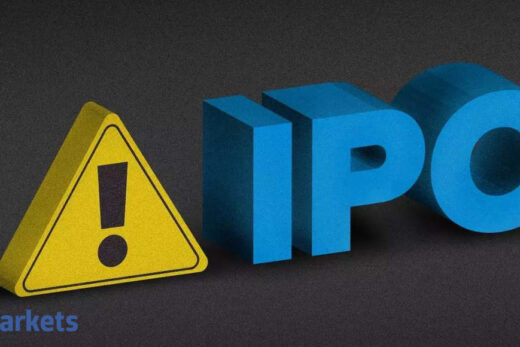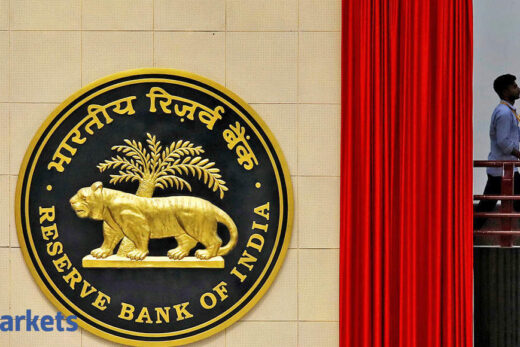What has been the impact of twin margin rules on volumes?
Until March, we were not really affected as the leverage we offered was anyway lesser than whatever is mandated. From March, across the industry, a lot of large brokers have been affected. What has happened is a lot of businesses moved from futures trading to options trading in case of derivatives and in case of equity trading, there has been reduction in trading volumes. Right now, the reduction is between 15% and 20% in futures and in equities. But it can potentially become more as and when we get closer to September.
I always thought there will be like a 30% reduction by September but what has also changed for the industry is that participation has gone up significantly over the last six months. Considering that participation has gone up significantly, the overall impact eventually by September might be 15-20%.
Last month, we saw how leverage trading blew up in the US. Many retail investors are also involved in heavy leverage option trading which is a ticking time bomb. Do you think a similar blow-up could happen in India or are there sufficient safeguards?
In India, retail traders are all buying options and when you buy options you can only lose to the extent of the money you have. Leverage on buying options was never allowed in the sense that if you want to buy an option for say a premium of Rs 1,000, you have to have Rs 1,000. So a person who buys an option can lose the entire Rs 1,000 in two minutes. But he does not bring any systemic risk. So, if they lose, they lose their money but it is not a problem for the industry as such like how Nomura or a bunch of brokers lost money. Brokers in India do not carry such risks.
Every few weeks, Zerodha trends on social media because of technical disruptions. Traders complain of losing money due to them. So why does it happen so often, is there a permanent fix to it?
In the last one year, there have been four issues. Each time, a different kind of issue has affected us. Last time, it had something to do with our data centre. In the technology business, there is no way not to have a downtime. Everyone from Google to Amazon to exchanges to everyone will have downtime, even banks. If you compare us to all the other top 10 brokers in India, we for sure have much lesser downtime than anyone else.
But we trend more because we are a large broker with 20-25% of the market. Most of our customers are very young and very vocal on social media. So the average age of the customer is 30 something. We have grown because of all the good words on social media. But social media is a double-edged sword. When there are issues they trend and when we are doing okay, we trend because of good things as well.
Talking about the NSE downtime in February, was there a communication failure between NSE and brokers and brokers and customers?
When there is a tech issue it takes time to figure out what the issue is. Say tomorrow if you are running a business and when there is an issue and you are not able to offer a service, the first thing you are going to do is first figure out where the issue is. The more complicated technology, the bigger the issue and much tougher to find a solution. Now if you do not really know the issue, it is very tough to even say when it will get fixed. People who do not understand technology will ask that question like when will it be back up? But unless you know what is the issue, how do you even tell them?
The problem is that people’s money is at stake, that is why they are always worried….
What I am saying here is that in a tech world, everyone has to make peace with that. When there are tech issues, I understand, communication typically breaks down everywhere. If the NSE was able to give a timeline saying we have found the issue and we are doing this and this and it will get sorted by this time, if they could come in and communicate like that then everyone would have communicated. But they did not even know all of that and that is why they did not communicate.
I think what was wrong on that day was that there was no standard protocol to deal with it. Everyone was going helter-skelter trying to figure out what they would do. Till they announced, no one knew if they would extend trading or not. What could have been better is if there was a protocol not just for NSE but all the exchanges saying if on a certain day if one exchange is down, both the exchanges will remain open for one hour extra.
What are your internal earnings projections for FY22?
We are factoring in 30% de-growth. This (FY21) year was an exceptional year. one was of course there is a lot of new user growth, and two markets were very volatile. With volatility, trading volume increases significantly. One of the reasons for trading volume to have dropped over the last couple of two-three weeks is volatility is much lesser than the average volatility in the first half of this year or the first eight-nine months of this year. Considering the reduced intraday leverages, assuming lesser volatility and assuming lesser number of new customer additions in FY22, from this year to next year there may be 25-30% de-growth in revenues unless we figure another way to boost revenue.
In the IPO mart, we have seen many issues getting 100 times subscription. Do you think such exuberance is healthy for the market or is there something fundamentally wrong?
No, in the stock markets, usually greed is the enabler. IPOs are really the simplest product for a customer to understand and so it is natural that a lot of people get attracted to IPOs. You apply, you get it, you get a listing gain, you sell it and you make money–very simple concept. A lot of new account addition is also because of this whole appetite for IPOs as people want to apply from multiple accounts so that their chances of getting shares are higher.
Is this an exuberance? To be fair the whole world is in a bubble territory. If you look at all the asset prices across the world and try to map the underlying economy, it seems there is some misalignment. In a bubble territory, there is always going to be exuberance and not just for IPOs. IPOs are good to grow the capital market ecosystem because when an IPO happens, a new type of company comes and it is easier to grow the audience. Then
came and we now have a gaming company on Indian exchanges. Now I can go and attract a newer kind of audience in the stock market who would not have come if not for those IPOs.
So when can we see Zerodha’s IPO?
No plans as such. We have not really raised outside money and there is no need of raising capital because we are a very low cost kind of online digital business. The only reason I think we would have gone for an IPO is if tomorrow we could somehow make our customer our shareholder as well. So can the word of mouth help us even more? Answer to that question is probably the only reason we would bring IPO and not really for raising money.
The business has grown till now without any marketing or advertisement. We are so nimble we can get up every morning and do what is right for the customer. Otherwise you will have to start worrying about the investors and typically what is right for the investor is not always right for the customer. It is a very thin line and today the fact that every morning all of us can get up and do what is right for the customer is really the edge we have over our competition who might not be able to think like that.
In the broking industry, is there space for everyone or will there be consolidation?
At the tail of the market, there is already a lot of consolidation. A lot of old school brokers are shutting shop. In this low cost pricing model, I do not think there is space for more than 50 people. And even within 50, brokers will have to build their niche viz. tech first business or advisory first business or some other type of business.
There is space for brokers who are focussing on advisors and there is space for brokers who are focussing mainly on technology and products. I do not think one broker can really do everything. Eventually the person who can stay ahead in terms of product over the long period of time will be the one who can win.
What plans do you have to monetise Zerodha Coin?
Our NBFC has gone live where we are giving loans against securities. People who have mutual funds or stocks, an pledge and borrow money against it at a very low cost because it is secured and it is liquid.
Also the way we have structured that lending business is that unlike others, if you miss on one EMI, suddenly the rate goes up. We have not done any monetisation. It is not going to be easy because at 10.5%, the margins are quite thin.
What margins are you talking about here?
On lending, if you pledge one lakh rupees of stocks and you get say Rs 50,000 against it, you would be paying 10.5% interest. But at 10.5%, the cost of money being 7-8%, your margins are 1.5-2% types. So there is not a lot of money to be made but yes, hopefully it will add a little bit to our revenues.
Will Zerodha emerge as a diversified financial company in 10 years?
Lending is not really something that excites us so even this loan against securities we have done was because it was client’s need. We would not ever do unsecured lending which is the majority part of finance in today’s world.
Currently while we offer stocks, we are looking at offering more and more fixed income instruments because we believe risk appetite wise, India is better suited for fixed income versus equity because yields which are a little higher than fixed deposit but risk lesser than stocks and I think India needs a product like that.
Along with that advisory is a piece we have to figure. We still do not know exactly how but for a lot of these folks who want to invest and trade in the markets, there should be some way to help them do the right things. We are still debating upon how it should be because people do not trust their money if it is a robot advisory app. Now if there is a human first, humans can potentially compromise. It should be a right marriage of human advisors plus digital, and also like a product where you do not earn from the manufacturer but you kind of charge a fee and all of that. So we need to see how this plays out, it is very crude in a way we are thinking today.
You applied for a mutual fund license. What is the plan there?
The AMC license is actually more about simplifying mutual funds as a product itself because today a lot of first time investors think about investing in a market that is inundated with hybrid funds. Almost 90% of the people who decide to buy a mutual fund are doing so because they want savings for their retirement. So why even bother having all these different kinds of funds? It is like can we build something like a vanguard retirement fund. So we are not going to build another active large cap fund, I do not think India needs that, there are enough and more funds.
Where exactly are you investing, what is the asset allocation like, if we talk about your personal money?
My younger brother manages it. We do have a large exposure to stocks. I am a big believer in the India story and we believe that India will continue to grow. Of course, there will be these interim bubbles and we have to just plan it out properly. So a lot of it is equity, a lot of it is Indian stocks.
We are not married to any sector of sorts. We are bullish about capital markets because we get a ring side view and we are seeing that there is a big shift happening in the way people look at capital markets. I think interest rates are going to remain low for a long period of time and real estate has probably already peaked out in terms of the bull market. You are then left with the capital market as an asset class. We are bullish on a lot of businesses which are working in the capital markets ecosystem.



